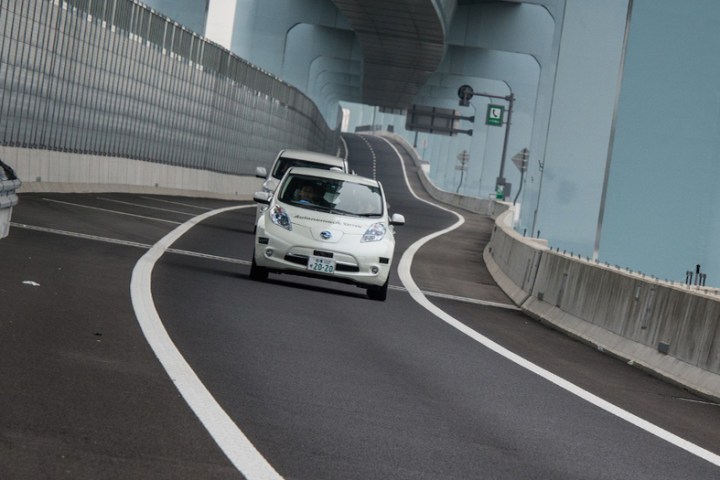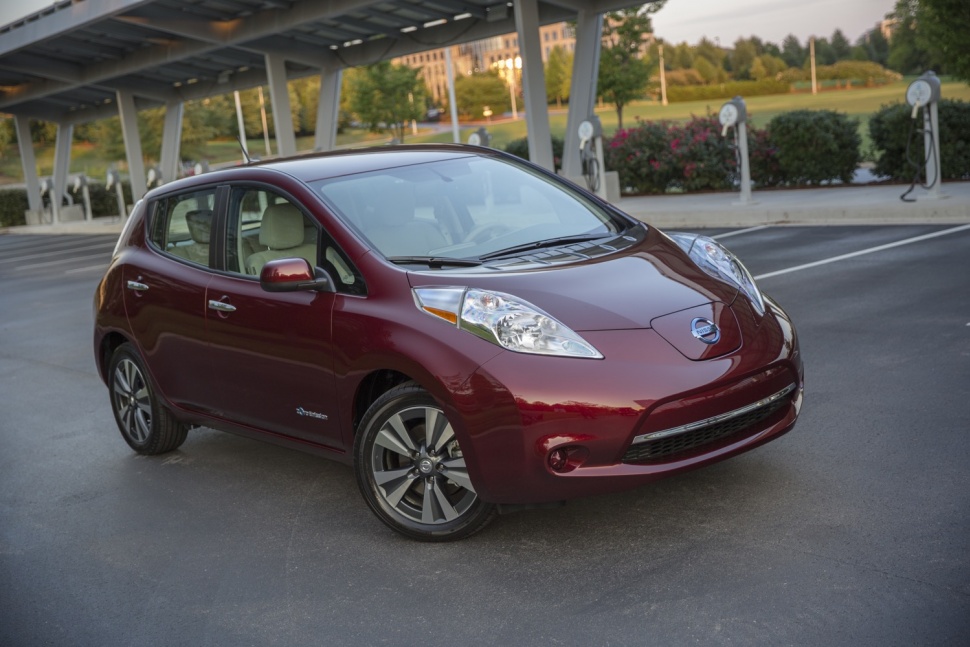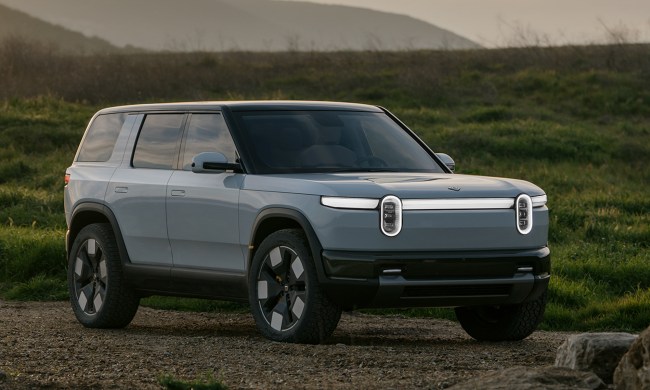
Based on the first-generation Nissan Leaf EV, the concept gains a slew of sensors and cameras to enable lane changes, merges on and off highways, and passing of vehicles without driver assistance. Nissan claims the Piloted Drive 1.0 Concept previews a fully autonomous production car due in 2020.
Testing of the Piloted Drive system began earlier this week in Japan at Nissan’s Advanced Technology Center is the south of Tokyo. The suite of semiautonomous systems are intended to make “occupants feel as though they were in the hands of a skilled driver.” I suppose that’s an encouragement for those who fear a self-driving vehicle would handle like a newly licensed 16-year-old.

The Leaf concept vehicle is equipped with dozens of sensors, 12 cameras, five radar sensors, four laser scanners, and ultrasonic sensors, according to Tetsuya Iijima who is general manager of Nissan’s advanced driver assist systems strategy and engineering division. That’s a whole lot more guidance technology than semiautonomous systems currently being tested on roads like Tesla’s Model S Auto Pilot.
Iijima noted that autonomous driving on the highway will be offered in Japan before the end of 2016. To meet regulations for this testing, the Leaf concept will feature a Manual Drive mode that lets a human driver regain control of the vehicle and operate it like a normal car.
As far as the Piloted Drive 1.0 Concept’s powertrain, expect it to share the internals of the 2016 Leaf, which uses a new 30kW battery pack good for 107 miles of electric driving range. In related news, Nissan will reveal a new concept at the Tokyo Motor Show next month that will showcase the brand’s “future vision of car intelligence and electrification,” most likely meaning it will use a full electric powertrain and semiautonomous driving tech. similar to systems on the Piloted Drive 1.0 Concept.


